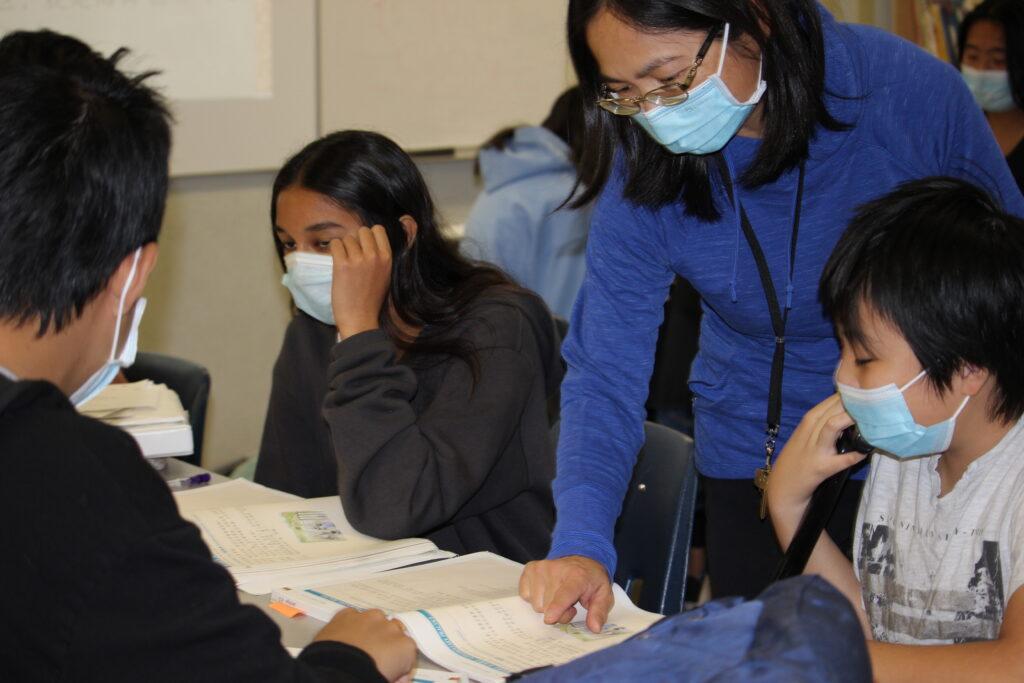When Chinese teacher Mariam Fan left the language department to become a Teacher On Special Assignment (TOSA) for the district in September, the school scrambled to find someone to fill in her shoes.
Recently, a new face appeared in Room 403 with short hair and round glasses: Chenhui Wu, the new part-time Chinese 3, 4 and AP teacher.
Wu is teaching Chinese with Sara Tseng, the long-time teacher of Chinese 1 and 2, and Rita Yeh, a newly hired part-time teacher for 7th period Chinese 2.
Although new to the language department, Wu is confident that she can handle the responsibility of teaching five Chinese classes due to her past experience: For the past 15 years, she taught at the Mandarin Language and Cultural Center, a Chinese Saturday School that uses Saratoga High facilities. Wu also has an undergraduate and master’s degree in education from National Taiwan Normal University.
“I know the stakes for being a Chinese teacher at a public school are high because not only do you have to speak fluent Chinese, but also be able to teach this intricate language in an engaging way while shaping a class community,” Wu said. “I solely believe it is my background in education that allowed me to get this job.”
Both Wu and Yeh have implemented changes to the Chinese curriculum based on their teaching philosophy of “laying a solid foundation before doing anything else,” Wu said.
Wu decided to make the best use of the textbook passages and exercises, materials that were not heavily emphasized by Fan, who adopted a more project-heavy teaching style. Recently, Wu’s students read simplified versions of classic ancient Chinese legends like “Oath of the Peach Garden” in “Romance of the Three Kingdoms.”
Yeh, on the other hand, uses the “fishing” vocabulary-learning strategy with her students, which involves memorizing a Chinese word, writing the word on paper from memory and checking for the missing strokes.
Students have responded to this more structured teaching style with mostly positive reactions.
Freshman Richard Cheung, who is taking Chinese 3, said he enjoys learning new vocabulary from textbook readings. Moreover, Wu’s classroom norms have prompted him to engage more actively with Chinese inside and outside of the classroom in his daily communications, he said.
Freshman Hayden Fu, who is also taking Chinese 3, said the biggest change he noticed in the curriculum has been the larger emphasis on speaking solely Chinese in class.
“Right now, we have to always speak Chinese in class, whereas before we could slip in some English if we were struggling to express a point,” Fu said. “It’s definitely more work.”
In addition to implementing changes in the curriculum, both new teachers are determined to establish a close-knit community with their students, strengthening the presence of Chinese culture on campus. Along with Tseng, they are hoping to host Chinese holidays’ celebrations later on in the school year while adhering to COVID-19 restrictions.
“I definitely would like to start thinking about how to invite our community into our culture,” Yeh said, “because Chinese is not only about the language.”


























